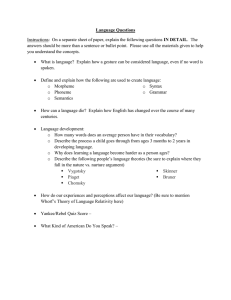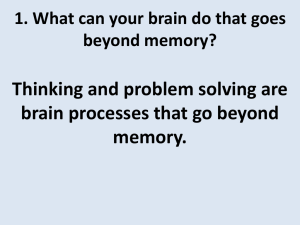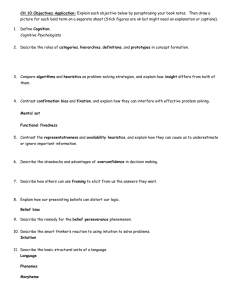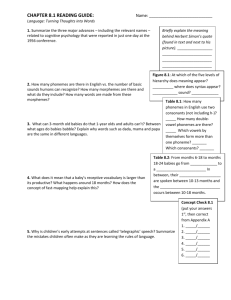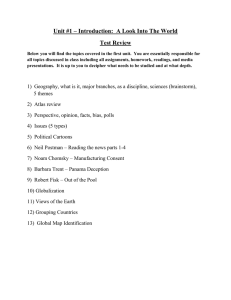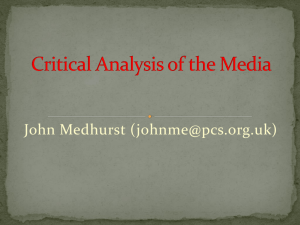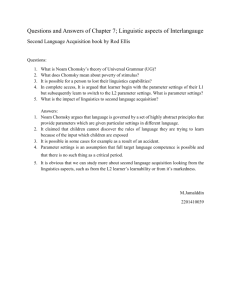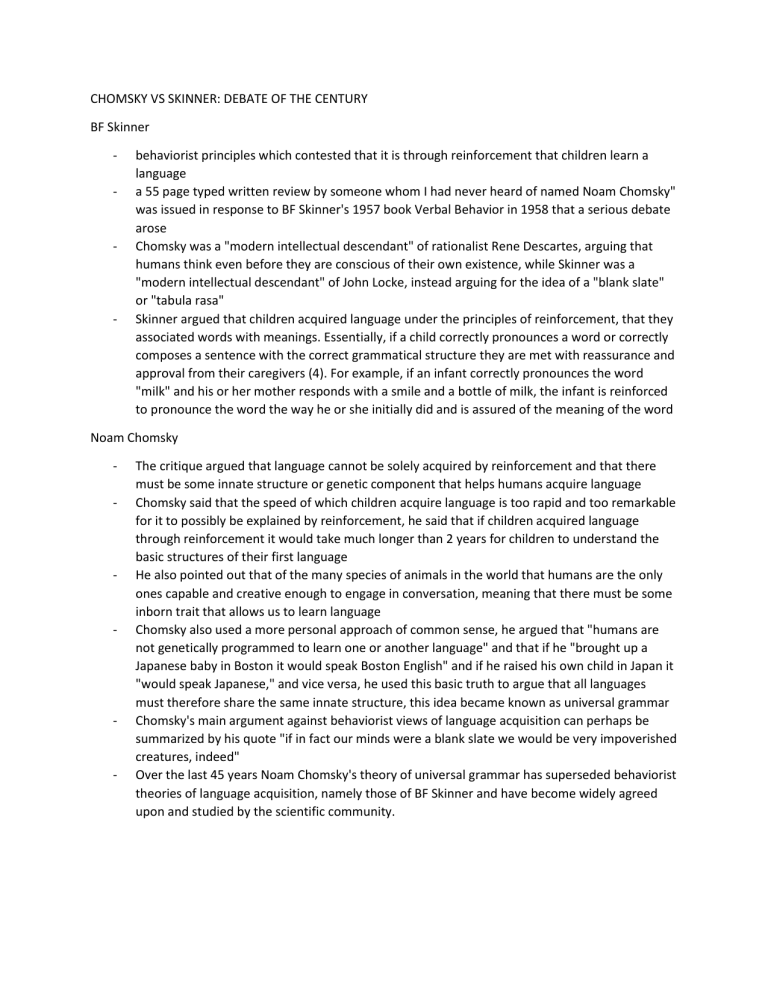
CHOMSKY VS SKINNER: DEBATE OF THE CENTURY BF Skinner - - - behaviorist principles which contested that it is through reinforcement that children learn a language a 55 page typed written review by someone whom I had never heard of named Noam Chomsky" was issued in response to BF Skinner's 1957 book Verbal Behavior in 1958 that a serious debate arose Chomsky was a "modern intellectual descendant" of rationalist Rene Descartes, arguing that humans think even before they are conscious of their own existence, while Skinner was a "modern intellectual descendant" of John Locke, instead arguing for the idea of a "blank slate" or "tabula rasa" Skinner argued that children acquired language under the principles of reinforcement, that they associated words with meanings. Essentially, if a child correctly pronounces a word or correctly composes a sentence with the correct grammatical structure they are met with reassurance and approval from their caregivers (4). For example, if an infant correctly pronounces the word "milk" and his or her mother responds with a smile and a bottle of milk, the infant is reinforced to pronounce the word the way he or she initially did and is assured of the meaning of the word Noam Chomsky - - - - - The critique argued that language cannot be solely acquired by reinforcement and that there must be some innate structure or genetic component that helps humans acquire language Chomsky said that the speed of which children acquire language is too rapid and too remarkable for it to possibly be explained by reinforcement, he said that if children acquired language through reinforcement it would take much longer than 2 years for children to understand the basic structures of their first language He also pointed out that of the many species of animals in the world that humans are the only ones capable and creative enough to engage in conversation, meaning that there must be some inborn trait that allows us to learn language Chomsky also used a more personal approach of common sense, he argued that "humans are not genetically programmed to learn one or another language" and that if he "brought up a Japanese baby in Boston it would speak Boston English" and if he raised his own child in Japan it "would speak Japanese," and vice versa, he used this basic truth to argue that all languages must therefore share the same innate structure, this idea became known as universal grammar Chomsky's main argument against behaviorist views of language acquisition can perhaps be summarized by his quote "if in fact our minds were a blank slate we would be very impoverished creatures, indeed" Over the last 45 years Noam Chomsky's theory of universal grammar has superseded behaviorist theories of language acquisition, namely those of BF Skinner and have become widely agreed upon and studied by the scientific community. The Debate - - - Skinner believes that language is learned, whereas Chomsky believes that language is innate, and is simply developed. Skinner is a behaviorist, whereas Chomsky is a structuralist In many ways, the "debate" between the two men is simply a reincarnation of the timless question of "nature versus nurture," which people have found is impossible to answer most of the time Supporters of Chomsky say that "Skinner is nothing but a stimulus response psychologist" or that Skinner thinks "people are nothing more than pigeons" Since Skinner never gave a formal response to Chomsky and allowed a "Chomskyan revolution" to occur in the field of linguistics in the 1960's the verdict as to which psychological mind reigns superior will always be an open-ended question, without any sort of consensus Although it should be known that if there ever was a true debate between Chomsky and Skinner, that Chomsky won under the principles of both forfeiture and acceptance. Chomsky's theory of universal grammar is now the most widely cited linguistic theory and the most respected by the scientific community Early American psychology - Series of stage 1. Moral and mental philosophy (to learn psych was to learn the accepted theology of the day). 2. Intellectual philosophy (psych begins becoming a separate science) 3. Psych finally becomes an empirical science (late 1880’s) 4. Functionalism (how does it help you adapt or deal with things) (opposed to structuralism which is how the mind is put together) Functional psychology - A practical science Researched on many participants (animals, children, abnormal people) Concerned for why of mental processes Directly or indirectly influence by William James (how does our mind help to adapt/cope with the world we live in.
